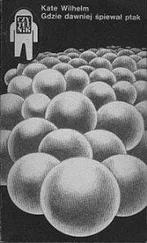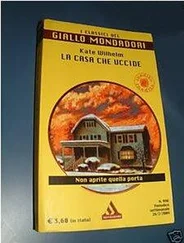Elt al Trin rose to speak then. “I remind you, gentlemen, of the parable of the ashtris and the lantric. The lantric in his wanderings came into the valley where the ashtris had lived peacefully since time immemorial. The lantric blundered into their nests, killing great numbers of them, and the ashtris held a meeting. What should we do? they cried. Look at how big the lantric is. We cannot hope to subdue an enemy so powerful. Let us move away until he tires of this valley and leaves it again. Even as they spoke thus, the lantric stepped on the nursery and destroyed thousands of their young, and then on the passageways that led to the communal dwellings, so that many thousands more were trapped and doomed to die from suffocation. One of the ashtris rose then and shouted, Let us all together meet this lantric. We number millions to his one. That is all that we have to fight with, our vast numbers. So they gathered, and in the dawn they swarmed over the lantric, blinding him with their bodies, piercing his tough skin with their pincers, chewing their way into his heart, and by the dusk the lantric lay dead among them.”
Elt al Trin paused and held up a transparent container in which there were three ashtris, no larger than fleas. There was a murmur throughout the chamber. He replaced the container on the table before him. “I say to you, gentlemen, we have nothing to fight with but our numbers. Today we are forty thousand fighting men, our enemy has ten thousand stationed on Tensor. Tomorrow he will have hundreds of thousands, and then it will be time to sit waiting for the intercession of the mythical Outsiders.” There was scattered clicking of the audience’s tongues against their teeth, and he held up his hand for quiet. “We don’t even know that the Outsiders exist! What evidence have we that there are such people? A rumour from a dying man, a prisoner from Mellic who lived in a ship’s storeroom and was burned by radiation for three weeks. Who can say how much of his tale was born of sickness? How firmly entrenched will the World Group powers be before this mythical race appears from nowhere in order to aid a people, of whom it has never even heard? Might we not better go back to the anthropological gods of our fathers and ask for their intercession? Might not the one be as helpful to us in our great need as the other?”
Fedo waited until there was again silence in the chamber before he made his final rebuttal. “My friends, what are numbers against the rain? Can numbers alone turn back the fires, the gases, the bombs? Can numbers withstand the deadly beams that dissolve and turn to air the targets they seek? We know about the camps where the soldiers live, the areas they have cleared about them; we know about the beams they can use to destroy anything that moves within those cleared areas, the gas clouds that bring death with even greater speed. How can we overcome them if we cannot even approach them? Those who go into our cities and towns? Yes, we can murder them, a handful, enough to draw the wrath of the main body, that is all. Then what? I can tell you: destruction. Complete and utter destruction.”
“We don’t know that they won’t visit that kind of complete destruction on us at any time as matters now stand!”
“But we do know that they haven’t done so yet.”
“They are waiting for their reinforcements! We intercepted their message to that effect. One month. That’s how much time we have! One month!”
Trol raised his hand for the debate to be ended. Each side had had its three hours; all had been said that could alter the situation, tilt it towards either position. Now it would rest with him and his council, but mainly with him. He inclined his head towards the council room, and the other members arose heavily and started to leave the large chamber. Trol was handed a message which he read. He raised his hand for attention.
“A metal robot has emerged from the ship that landed,” he said. “The ship is radioactive and cannot be approached. The robot is less radioactive. It has made no overture of any sort towards the observers, although they are positive that they are well within its range. They await instructions.”
“I’ll go immediately,” Luo umDis cried, jumping to his feet. “And Das, and Lewi…”
Trol nodded. “I command you, Luo, to take charge of the matter, to report back to me by radio of your findings. Take as many of the scientists as you deem necessary. Be wary of a possible trick…”
Luo bowed, his sharp blue eyes blazing with excitement and hope. A robot… If he could programme it to serve them… If it were more than the simple mobile tool that he knew the World Group possessed…
A group of twelve men travelled fast through the thick forests as silently as the animals that watched their progress. The people of Tensor had learned to live with their stretches of forests, not sacrificing them when technology began rising to ascendancy. The forests were still honoured and loved for themselves; the people still preferred them to the cities they dwelled in and the rare crime against nature itself was as severely punished as the still rarer crime against man. The patrols met the group as it neared the area where the robot was standing.
“It left the ship and since then has not moved,” the patrol scout said, motioning Luo to advance quietly. They stayed behind trees and looked out at the robot gleaming red and gold as it reflected the lengthening rays of the setting sun.
“Have you tried to contact it at all?”
The scout shook his head, his gaze intent on the robot.
It waited motionlessly. It had the need of fuel, and had not been taught how to obtain it. No one was threatening it. It waited. If no one had approached it at that point it would have waited until time and change wore away its covering, eroded its metals and crystals and diluted its chemicals until they were inert traces only. It recorded the voices that whispered away to its left, but it didn’t turn its dome to gather other sensory data concerning them. The words it was recording were meaningless. It scanned, then activated the circuit that was programmed for translating.
“Don’t guess we have much that could hurt it down here. We could call for demo charges.”
“No! Whatever you do you must not damage it until we have a chance to examine it.”
At the sentry’s voice a second circuit had been activated, the circuit that led to defensive measures. A slit appeared in the dome and infra-red sensors sought out the men speaking, caught them and fastened on them. The circuit that would activate the laser pulsed steadily, but did not close the connection that meant fire. The feedback mechanism said that no attack was forthcoming after all. It waited, watchful and ready to defend itself.
“We’ll have to get it back to headquarters. We can’t leave it out here. It might be seen and destroyed by the WG planes…”
It scanned. It had no fuel for flight, and didn’t know how to refuel. It could wait for an attack and meet it when it came, or it could allow itself to be moved out of the range of danger. It had experience with each of the alternatives; it had waited patiently, it had fled, it had attacked: each had led to satisfaction. The occasions it had allowed itself to be moved, it had learned more about itself, how better to function. It would be moved again. It rolled slowly towards the man, its wheels digging in slightly on the soft ground. It stopped and lowered treads, and its progress was faster. Luo watched it approach with awe, and a touch of fear.
The tarom tree of Tensor had peculiar properties, such that when cut the wood was pliant, moulded easily, and could be twisted into shapes for furniture, ornaments, and machine parts with no tools other than those used for precision measurements. The wood dried slowly, but if allowed to dry in controlled temperatures ranging from 1°C. to 16°C, with humidity of no more than ten per cent, after a period of six months, World Group time, the finished product had the hardness of 8 on the Mohr scale. Only corundum and diamonds were harder of all the materials found in nature. The northern varieties of the wood dried with a deep, mahogany red colour, while those from southern parts lightened to a pale gold with age. Depending on the cut there were rings or swirls, or geometric patterns in the grain. Veneers from it could be cut one thousandth of an inch thick, be more durable than plastic, lighter than plastic, and far lovelier than plastic.
Читать дальше












